我的母语是...
三种语言说出我的心声
母语教育如何适应社会变迁
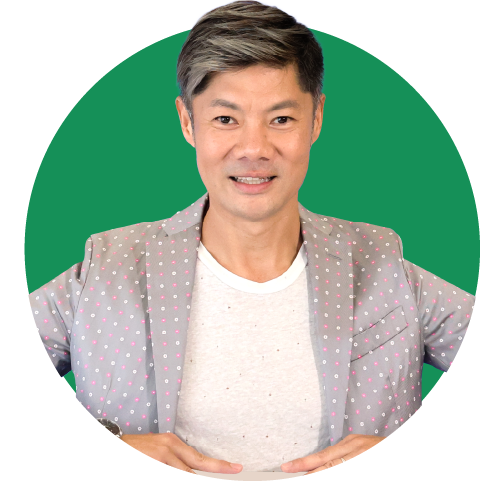
杨君伟Danny Yeo
资深媒体人
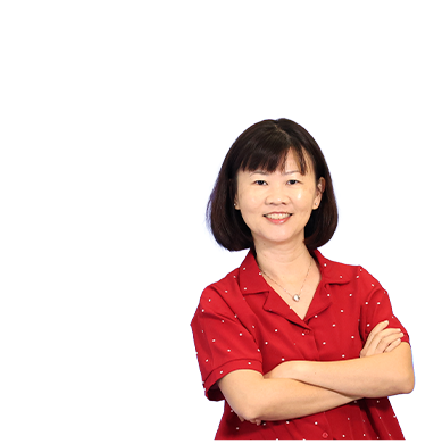
陈素君《联合早报》副刊编辑
陈宇昕《联合早报》副刊记者
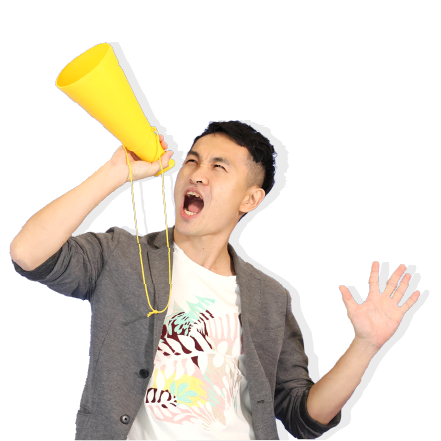
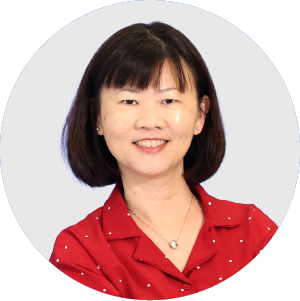
陈素君《联合早报》副刊编辑
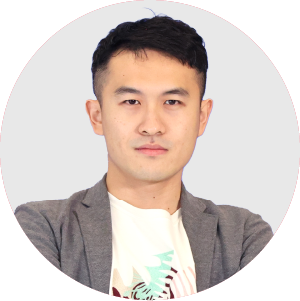
陈宇昕《联合早报》副刊记者
中
EN
Some discussions can go on forever.
Some stories cannot be told enough.
Welcome to Zaobao podcast Same Same But Different. I'm Yu Xin.
I'm Sor Koon.Same Same But Different is presented by the Singapore Chinese Cultural Centre. Let’s learn about the culture and stories of Chinese Singaporeans together.
In the podcast, we chat with Chinese Singaporeans from different backgrounds about how they view their Chinese identity.
Hey Sor Koon, where are we meeting next week?
It is best if we find a place near the MRT so that it’s more convenient for us to go home afterwards.
Okay, let me think about it. Your Mandarin is so good. Don’t you think that it is weird when we add words like ‘then’ and ‘abuden’ in our sentences?
When I took linguistics in university, I learnt that using more than two languages in one sentence, also known as code-switching, is common in multilingual countries. This is how Singaporean Chinese, or “Singdarin” has developed.
Recently my friend shared this Wikipedia page with me. Surprisingly, there is a term called “Singdarin”. In the past, I only knew Singlish. Didn’t know that Singaporean Chinese (language) is called Singdarin with its own Wikipedia page.
Exactly! I think we all have a pretty good grasp of the language.
It has become second nature to us. Is the mixture of languages considered our mother tongue?
This brings us to our topic today: what is our mother tongue?
Our guest today is a familiar face. He’s Danny Yeo, a local media personality. Danny started his media career in 1990. His work experience spans radio, television, theatre, writing and education. Danny, welcome to our podcast.
Thank you Sor Koon. I have known Sor Koon for a long time. It can be scary to talk about how long it has been.
How did you get to know each other?
We knew each other when he was a radio DJ.
Yes, I started young. When I entered the industry, I was still young and naive. It was my first job. Subsequently, from television, theatre to writing, all my work is related to the Chinese language.
Is Mandarin my mother tongue?
As mentioned, Danny has been in the Chinese media industry for many years. Whether it’s radio or theatre, we would assume that Danny’s mother tongue is Mandarin. Danny, what do you say? Academically, the term “mother tongue” can be defined in many ways. Singapore’s government also has its own definition of “mother tongue”. Danny, what is “mother tongue” to you?
My upbringing is quite unusual. Before I went to kindergarten, I could only speak Malay. Perhaps Malay should be my mother tongue. At that time, my parents left me with a Malay family on weekdays due to work. Back then, I only knew how to speak Malay.When it was time to attend kindergarten, my parents became worried and brought me home. I only started to learn Chinese before kindergarten. My father is Cantonese while my mother is Teochew. They speak Cantonese to each other, and I was influenced by them. I can speak Cantonese quite well. Thus, I’m rather confused and do not know how to respond to Yu Xin’s question. I struggle to explain it clearly. All these years, I have always strived to speak Mandarin well.
You mentioned that your work has always been linked to the Chinese language. It is your bread and butter. As a presenter, you have to speak standard Mandarin. Do you also speak standard Mandarin after work?
I dread the question. When I board a taxi with my mask on, the taxi driver sometimes asks me if I am from another country. I would say that I am a true blue Singaporean, I was born and raised here. Then the taxi driver will respond by saying, “Don’t lie. You are a new immigrant, right?” I feel that language is an interesting subject. Probably because of my training from a young age and the demands of my work. In the past, when I first got to know Sor Koon, I was self-conscious of how I speak. I feel proud to be able to enunciate words accurately. As I became older, by the time I got to know Yu Xin in recent years, I felt more relaxed. What I cannot deny is that language reflects the life and the country the person is from.
When travelling abroad, we can guess where someone is from by listening to their accent or tone. How about a quiz for Sor Koon and Yu Xin? What is Singapore’s national language?
Malay, of course.
Malay
That’s right. What is Singapore’s official language?
English
Isn’t it four languages (English, Malay, Chinese, Tamil)? All of them are our official languages.
That’s why mother tongue is such an interesting topic. From what I understand, it can be related to your culture or the country you reside in. More importantly, what is your self-perception? The literal meaning of mother tongue is the first language that a person learns from birth. Using this definition, my mother tongue could be Cantonese. Mother tongue can also be the language that our parents frequently use, the language of your birthplace or the language of your adopted country after migration. Hence, mother tongue is such a fascinating topic for Singaporeans.
Exactly. Your mother tongue might also be decided by your parents. Newborns don’t get to choose their mother tongue. The language that their parents speak eventually becomes their mother tongue.
Do you think mother tongue is the language that parents use to converse with their child? Or is it the language that parents use to communicate with each other? For instance, I have friends who speak Mandarin well. They work in the Chinese-language media or Chinese language education sectors. Or they earn a living through the language. However, they choose to use English to communicate with their children. What is the mother tongue of their children?
It‘s common.I have friends who are like this as well. They speak to their spouses in Mandarin but communicate with their children in English.
For me, although my parents speak Mandarin to me, they switch to Teochew when conversing with their siblings and parents. The language they speak will not become my mother tongue. I believe that my mother tongue is the language they use to communicate with me.
Multilingual environment in Singapore
In the past, I was very persistent. I would defend the mother tongue language with all my might, to the extent of tarnishing my own reputation. I felt that it’s important to me. Subsequently, I became less persistent because I realised that Singapore’s circumstances are different. There are many scenarios, and how everyone chooses their mother tongue can be very diverse.
How have your perspectives changed?
Now, I feel that if a child is only exposed to English from a young age and spends little time on their mother tongue, I don’t think it’s necessary to force him to accept Chinese as his mother tongue. This is because he did not have a chance to be exposed to the language and his parents did not provide the opportunities for him to learn the language. Naturally, he will not develop any feelings towards the language that he was forced to learn. Is there a possibility that English will become the mother tongue of Singapore’s children in the future?
It seems to be the case.
Feels like we are gradually moving towards that direction.
Yes.
It kind of feels like the mother tongue used to be linked to your ethnic identity, but not anymore. It should be related to the environment that you are in.
Probably depends on the context. The environment in Singapore is very different. Although the majority of us are Chinese, most of us may not be speaking Mandarin and are not passionate about the language, especially the younger generation. I feel that they are distancing themselves from the language. Besides our race, our mother tongue is also determined by our country, living environment as well as how our parents instilled the concept of mother tongue. In Singapore, what worries me more is that our mother tongue is losing the local flavour. For example, I think Singlish is worth preserving. It has the distinctive Singapore flavour. The accent and expressions cannot be replicated in other parts of the world. Likewise, I think Singdarin also has its place in this world.
It reminds me of Malaysian singer Namewee, who celebrates localised Mandarin. There are times when we have to use standard Mandarin during formal settings.
When it comes to such issues, my expectations are different. In my mind, it’s rather confusing and I can feel emotionally unstable. As a media professional, when I’m hosting a TV show, I will expect myself to be expressive and eloquent in the use of the language. On the other hand, when I am directing a play, I hope that my actors can deliver their lines naturally on stage, and they may not be using standardised Mandarin. It varies from person to person and the expectations are different. If you are a teacher, it is certainly a different story. If you are a professional presenter, I think you should hold yourself to high standards. However, for Singaporeans in general, they may not need to. Not everyone needs to speak standard Mandarin.
I am Singaporean Chinese
I feel that I have a good command of both Mandarin and English. It’s useful in my work and daily life. I regret that I have not learnt to speak Malay better, and have not been able to remember the Malay that I learnt as a child. That is because I did not have the opportunity to learn Malay after I started formal schooling. In Singapore, is the Malay language definitely the mother tongue of all Malays? Is Tamil necessarily the mother tongue of all Indians in Singapore? As I recall, many years ago, there was a petition against reducing the mother tongue’s weightage in Primary School Leaving Examination (PSLE). We went to Hong Lim Park to sign the petition. That was a good reminder, and an unforgettable experience. 12 years later, I can be very sure about what it means to be a Chinese Singaporean, in the sense that all the languages I speak are distinctly Singaporean, and they would not be replaced by other languages. That is something that I’m certain of.
We would all agree that we are more comfortable with communicating in Mandarin than in dialects due to the environment we grew up in. In the last two years, dialects have been used to publicise Covid and vaccination related information. The government used to be very strict in the use of dialects in mass media. As a former radio DJ, Danny should know that radio stations were not allowed to play songs with dialect lyrics. Otherwise, they could be fined. Right?
Yes, even until now, there is a perception that allowing dialect on mainstream media such as TV and radio can be dangerous. However, I do see a new trend. I was involved in the Committee to Promote Chinese Language Learning, and the Promote Mandarin Council, I also participated in other committees with the National Library Board and the Ministry of Education. From those discussions, it seems that the restrictions on dialects are easing. But it also appears ironic and hurtful. It used to be so tightly controlled. Now that it is more relaxed, one wonders what was the issue in the past? What did we lose by not letting people be exposed to dialects?
It is like a burnt out candle, can you rekindle it?
Yes, the candle has burnt out. It could also mean that a trace of human evolution has disappeared along with it.
Maybe we can say that, it will no longer leave a mark in Singapore.
You mean the Speak Mandarin Campaign.
Yes.
Danny, do you still have the opportunity to speak in Cantonese?
Well, I often find opportunities to speak Cantonese. For example, when I go abroad to film a TV programme and meet someone who speaks Cantonese, I would use the language to break the ice. In a recent episode from a programme that won the best documentary award, a father and his daughter had not been in contact for years and drifted apart, resulting in misunderstandings between them. But the father was getting old, and I had to visit him to tell him that his daughter wanted to reconnect with him. I was worried that he may drive me out. However, when I spoke in Cantonese, his eyes were wet with tears and he softened up. It reminded me of a similar experience when I was hosting a show in Chinatown. I stood on stage and the audience did not bother about me initially. As I began speaking in Cantonese, they felt that I was speaking a language that they understood, and it brought me closer to the audience. Besides being a childhood memory, Cantonese is a precious gift from my parents. It is also a key to hearts. I fear that the key will be lost after my generation.
Mother Tongue Test
Could you teach us how to identify our own mother tongue?
Sor Koon and Yu Xin, what is the language you use when arguing with others?
I would speak Mandarin.
Oops, I do not argue with others.
Yu Xin, let’s not give others a false appearance, okay?
My friends would say that arguing in dialect helps to strengthen the argument. If not, you won’t have the upperhand because it sounds too polite in Mandarin. We must use dialect.
I argue in English. It flows better. The words are stronger. It feels better to scold others in English.
I would still use Mandarin. However, I remember an incident at a hotel in Malaysia. There was a mix-up in my room, and I tried to use Malay to argue with the person at the counter. But I ran out of words. I felt so sad about it. I felt completely defeated.
Last question, what is the language you speak in your dreams?
It is very strange for me. In my dream there is no sound, it is text only, but I can feel the words.
I have not analysed how I speak in my dreams, but I guess it is all in Mandarin, because that is the language I am used to.
When I studied psychology and counselling, I learnt that you let your guard down when we dream and the language that appears in your dreams is the closest to your heart. In my dreams, I speak Mandarin.
You are complex.
Three languages are playing different roles in your life.
I do feel confused. As a result, I have always been interested in the mother tongue issue. It has been bugging me for years. Everything I do seems to be related to it. Strangely, in the last decade or so, people whom I met on the streets would regard me as a spokesperson of the mother tongue language, and I should defend it with righteous indignation. Over the years, I have become softer and more relaxed over these issues. Especially when I read commentaries in Zaobao, it felt like the same old discussions again.
The same issues are discussed incessantly.
Yes. The newspaper cuttings that I kept 12 years ago were very much the same as what I read in the articles today.
There are goals which we have not achieved. That’s why our readers come to us with the same feedback, right?
Mother Tongue education in Singapore
Over the years, I believe that like Danny, many people are recognising the complexity of issues related to their mother tongue. In the past, it was too simple to think that mother tongue attaches itself to ethnicity. Nowadays, we would appreciate the complexity of our mother tongue. With such an understanding, should Singapore's mother tongue education be adjusted to stay relevant?
I have been thinking about the matter for 12 years. 12 years ago, in 2010, the Ministry of Education considered lowering the weighting of mother tongue languages in PSLE. We were all very worried back then. The weighting of each subject was 25%. How much would the weighting of mother tongue languages be adjusted? From 25% to 20%, 15% or 10%? Is it a belittling of mother tongue languages? Does it mean that the subject is no longer important? At that time, I felt that many Singaporean Chinese did something courageous and great. 12 years on, I still feel emotional when I think about it. A lot of people stood up and participated in a petition asking the Ministry of Education to reconsider the decision to change the weighting of mother tongue languages. I also participated. I never thought I was ever going to accomplish great things, but because of the involvement, I felt that I have done my part as a Singaporean, and as a Chinese Singaporean.The mother tongue issue is very important, not only to those of us who care and love the language. At that time, 2800 people came to Hong Lim Park within 2 hours. Subsequently, although the weighting of mother tongue languages was not adjusted in the PSLE examinations, I know that many teachers had to make adjustments over the years, especially the mother tongue subject teachers, ranging from examination content, teaching approaches to their psychological and emotional state. I have always been concerned about the well-being of the Chinese language subject teachers because they are often the ones who are suffering silently.In Singapore, mother tongue is evolving. I no longer insist that the younger generation or my two nephews must know and speak Mandarin better. I think it is too much to ask of them. I just want them to know that they are Chinese, and it is the language that represents our self-identity, our ancestry and our shared identity.
Thank you Danny for wrapping up this episode. Thank you for taking time to share your thoughts on mother tongue issues.
Thank you.
I am Tan Sor Koon.
I am Tan Yu Xin. Thank you for tuning in to our podcast!
Same Same But Different podcast is presented by the Singapore Chinese Cultural Centre.Producers:Bian He, Ong Wen Yi and Lee Yi QianPost-production:Hoe Jian WeiZaobao podcasts are available on zaobao.sg and major podcast players. If you like our podcasts, please share and subscribe to them.
一些话题讲不完。
一些心声听不够。
欢迎收听早报播客《三言两语》。我是宇昕。
我是素君。《三言两语》由新加坡华族文化中心呈献。与我们一同了解新加坡华人的文化和故事。
我们在节目里,与来自不同背景的新加坡华人聊聊他们如何看待自己的华人身份?
素君,下个礼拜,我们在哪里 meet 啊?
最好选一个比较靠近 MRT 的,这样回家比较方便。
好,那我再想一下。你有没有觉得我们这样子讲话,我们经常会then,abuden 这样子,你讲话这么标准,你会觉得我们很奇怪吗?
以前在大学修这个语文学的时候,有说在同一句话里面用超过两种语言,这种语码转换,其实在那种多语言的国家是很普遍的。所以,这也就是形成了我们非常地道的新加坡式的华语 Singdarin。
最近,我有朋友给我看一个维基百科的网页。啊,竟然有一个叫做 Singdarin(新加坡式华语)。我以前只知道 Singlish(新加坡式英语),原来现在有一个叫做新加坡式华语,叫 Singdarin,还有一个自己的维基百科网页。
对对对,而且我觉得我们都掌握这个语言,掌握得相当不错。
不用掌握,我们生活中就是这样子,对不对?那有些时候就想,这样子复杂的融合,参杂着各种不同语言的一种讲话的方式,是我们的母语吗?
这就带到我们今天的主题,到底什么是我的母语?
我们今天的嘉宾是大家都非常熟悉的本地资深媒体人杨君伟。君伟从1990年起,就加入传媒界,做过广播、电视、舞台剧、写作以及教学等等领域。我们欢迎君伟。
谢谢素君,这表示说我跟素君认识很久了,因为说起年份,那是非常可怕的一件事情。
我们要提一下你们当年是怎么认识的吗?
我们是在他从事广播当 DJ 的时候认识的。
对,我必须要澄清,我很早出道。当时年纪小不懂事,所以就误入歧途,进入了媒体圈。不过确实,我的第一份工作是电台,那后来我觉得我参与的每一个领域,包括电视,舞台,文字,其实都离不开华文跟华语。
你的母语是华语吗?
刚刚我们讲的就是,君伟已经从事华语的媒体的工作这么多年,无论是广播还是剧场,大家第一印象就是君伟的母语一定是华语。那你自己怎么看呢?因为我们知道学界对母语有不同的定义,新加坡政府对于母语也有不同的定义,那你自己怎么看这个母语这件事情?
其实我自己的成长经验是蛮有趣的。我在正式进入幼稚园之前,其实我只会说马来语,所以也许我的母语应该是马来语,因为那个时候,我的父母亲他们都出外工作。所以我星期一到五,周日都是住在一户马来家庭里。当时,我也只会说马来话。要进入幼稚园的时候, 我的父母亲就开始担心,于是又把我抱回家。我还没有正式进入幼稚园之前才开始学习华语,但从小因为我父母亲的关系,我爸爸是潮州人,但我妈妈是广东人。他们两个人之间沟通的方式,又是用粤语广东话,所以我耳濡目染。我觉得我的广东话还不错,所以我蛮混淆,不太懂得怎么直接回答宇昕这个问题。因为我自己其实也很难说得明白。虽然后来我觉得我一直努力把华语说得更好。
像你刚才说的, 就是因为你的工作都离不开华文华语,那么就是华语基本上就是你吃饭的语言。身为主持人讲标准华语当然是应该的,不晓得私生活底下的你也是用标准的华语吗?
我觉得这个有点可怕,因为带着口罩上德士时,有时候德士司机问我说你是不是哪里人?然后我就说我是新加坡人。我是道道地地的新加坡人,我是在这边出生长大。然后就说:“哎呀,不要骗我啦,哎呀,你是新移民,是不是?”其实我觉得语言这个东西蛮有趣,可能是因为我从小接受的训练,也因为工作的要求。我觉得以前刚开始认识素君的时候,我可能自己也会抓得比较紧。然后,当时会认为字正腔圆是非常引以为傲的一件事情。可是后来,我认识宇昕之后的那个阶段,听起来好像是比较近期,我反而放得比较松。我觉得无可否认的是,语言总是跟一个人的生活,跟他的国家很有关系。
我们出国,我觉得当然只听那个语音或者是语气,可能就可以猜到这个人是从哪里来的。考一考素君跟宇昕,请问新加坡的国语是什么语?
国语当然是马来语。
马来语。
嗯,我们的官方语是什么语?
英语吧。
四个语言,不是吗?四个都是官方语。
所以我觉得母语,其实我们三个人一起来聊是蛮有趣的一个东西。因为据我所知,它可以是跟你的文化背景有关,也可以是你居住的国家,但是更重要的是,你对于自己的认知是怎么样的。如果我们是照字面来看的话,母语就是一个人,一生下来就接受的语言,那对我来说可能是广东话。它是你父母亲常使用的语言或者是你出生地的语言,或者是你移民之后被接纳的那个地方的语言。所以我觉得母语对于我们新加坡人来说,真的是太有趣了。
的确。或者其实母语是你父母决定的语言。小孩出生时没办法选择(自己的母语)。他爸妈讲什么(语言),就是他们来决定(孩子的母语)的。
但你觉得是父母亲跟孩子沟通的语言吗?还是父母亲之间用的语言?比方说我看到过很多身边的朋友,他们的华语其实都说的很好,他们可能也都从事华文媒体,或者是华文教学,或者是靠华文华语吃饭的。但是他们选择跟孩子用英语沟通,请问这孩子的母语是什么呢?
这是一个蛮普遍的现象。我身边的朋友也是这样,就是夫妻之间说的是华语,可是跟孩子是用英语沟通。
我自己的经验是,尽管父母亲跟我讲华语,但他们跟他们的兄弟姐妹,或者就我阿公阿嬷是讲潮州话的。他们讲的不会变成我的母语。只有他们跟我讲的(语言),才会变成我的母语,我觉得是这样。
新加坡丰富多彩的语言环境
其实以前我会很坚持,我甚至会捍卫母语,会为它拼死拼活,然后舍弃自己的名誉也就算了。就是觉得母语是很重要的。但是后来我觉得我越来越放松,因为我觉得新加坡的国情其实很不一样。我们有很多不同的情景,使每个人对于母语的选择其实也会变得比较多姿多彩。
那现在的观感怎么改变呢?
现在,我反而觉得,如果一个小孩,他从小接触的就是英语,然后他的母语接触的时间很少,那我没有必要强制他一定要接受他的母语是华语。因为他从小就没有机会接触这个语言,他的父母亲也没有让他有机会多学习。他自然而然的也就不会对这一个被强制性的语言感化,或者是同化,或者是对他有任何的情感。未来新加坡的孩子,他们的母语有没有可能就是英语呢?
其实现在应该(发生了)。
慢慢走向那个方向的感觉。
是。
有点感觉到以前你会把母语跟种族身份挂钩,但现在不会了。它应该是跟环境有关的。
我觉得这可能要看不同的地方,我觉得新加坡是一个很不一样的环境。我们虽然大部分都是华人,但是也未必大部分都会说华语或者是对华语有一种热爱,尤其是年轻人,我觉得他们离华语越来越远了。那所以如果我们说母语的话,其实除了要看种族,也要看国家,也要看你的生活环境,还有你的父母亲是怎么灌输这样子的一个概念的。我觉得母语在新加坡,我更担心的是我们会逐渐失去了我们新加坡的特色。那比方说,我觉得Singlish 是很值得保留的。Singlish是非常具有新加坡特色的,是世界上任何另外一个地方,任何一群人没有办法复制的腔调、文字。那我觉得也许新加坡式华语,它也是有它立足之地。
让我想到像黄明志歌手,马来西亚黄明志。他其实算是在到处宣扬这样子的一种地方特色的一个华语。有些时候我们会觉得,哎呀,一上到正式的舞台上就必须要用一个正式的语文。
在这方面,我的要求可能又会变得有点不太一样,所以我觉得我的头脑其实也蛮乱的,然后我自己的情绪也有点不太稳。当我是一个媒体人,比方说,我在主持电视节目的时候,我就要求自己的表达要够丰富,词汇要够精彩。又或者是我对于我的演员,当我在导戏的时候,我也希望说他们在舞台上面其实可以呈现出更自然、更顺耳的语言 ,但它是不是一定要标准,是不是一定要字正腔圆,我觉得这要因人而异。每个人我觉得那个要求可能都不太一样,但如果你是老师的话,那肯定就另当别论。如果你是专业的主持人的话,我觉得也应该对自己有一些要求,但是对于一般的新加坡人,其实我觉得我会放得比较松,不是每个人都需要说标准华语。
我是新加坡华人
华语跟英语,我觉得都掌握的还可以,对于我的工作跟我的生活确实带来很大的方便。我非常遗憾的是,我没有办法把马来话说得更好,或者是没有能力把小时候懂得的马来语给记下来。那是因为进入学校之后就根本没有机会接触到。那在新加坡,其实我觉得马来人的母语就一定是马来语吗?那印度人的母语是不是就是淡米尔语呢?我也会回想起很多年前,我们曾经有很多人为新加坡的母语请命,然后也到芳林公园去进行过的一次签名会。那一次我觉得是很好的提醒,也是一个很好的经验。从12年前的那次经验之后,我非常能够确定的就是,我是一个新加坡华人,我说的任何一种语言都是具有特色而不需要被另外一种语言所取代的。那是我非常肯定的一件事情。
我想我们这里三个人应该也不反对。因为那个成长环境的关系,就是跟方言相比,我们可能更习惯用华语来沟通。我想这两年,因为冠病的关系,要传达一些防疫的一些信息,鼓励老人家去接种疫苗,开始就是有一些广告用上了方言,就是本来,政府是相当严格的管控的。我想君伟因为之前当过DJ,应该知道以前广播上是不允许播放(方言)歌曲,歌词超过不懂多少句就要被罚款的,对吗?
是,甚至到现在,我觉得可能因为就有了一些观念,使得方言好像还是洪水猛兽,没有办法在主流媒体,尤其是电视跟电台上面出现。但我也看到了一个趋势。因为过去我也参加过推广华文学习委员会的工作,还有华语理事会,那同时我也在国家图书馆还有在教育部的不同委员会里头参与他们的讨论。那我觉得现在反而比较松了,但这对我来说是一个很吊诡跟有一点内伤的一个现象。就是以前抓得这么紧,现在放松了。那以前到底出了什么问题?又或者是我们过去一直都忽略了让人们接触方言,那现在会不会觉得那是一种错失?
就是好像要抓住某种尾巴这样,可是抓得住吗?
对,就尾巴早已经溜走了,又或者是他已经变成了整个人类进化论演变过程当中,已经消失掉的一条尾巴。
或者它已经不会再影响到新加坡。
讲华语政策。
嗯。
君伟,你平时还有机会用广东话说话吗?
嗯,我常常找机会用广东话说话。比方说有时候我到国外拍摄电视节目,然后碰到一些会说广东话的人,我就发现这个语言确实是可以为我打开一道门。比方说最近有一期,节目获得了最佳纪录片奖项。在那一集里头就有一个爸爸跟女儿,因为多年没有接触,然后也没有沟通,然后渐行渐远,甚至有很大的误会。可是爸爸的年纪大了,我那一天必须要上门去跟这个爸爸见面,然后跟他讲说,你女儿想要再跟你联络,你愿意吗?可是这个爸爸只会讲广东话。然后我当时是很怕我会被这个爸爸赶出门,然后吃闭门羹。可是我一讲广东话,他的眼睛就湿了,然后他的整个态度就软化了。这跟我很多年前在牛车水主持一个节目的时候有同样的想法。我站在台上,台下的观众好像都没有很理我,可是我一用广东话,他们突然间就觉得,我听得懂,然后这个人也跟我更接近了。所以广东话对我来说,它除了是童年的记忆,然后也同时是我觉得我父母亲给我很珍贵的礼物之外,他也是一道道心门的钥匙。这把钥匙我觉得在我这一代之后应该也就会遗失掉。
检验一下自己的母语
你有没有一些教大家检验自己母语的方法?
请素君跟那个宇昕再次抢答,吵架的时候,请问你用什么语言?
我是用华语。
哎呀,我不跟人吵架的。
宇昕,不要刻意给人家留下好印象好不好?
身边有好多朋友,他说你吵架一定要用方言,这样才有那个气势。他说你用华语太斯文了,吵不过别人的,一定要用方言吵的。
我吵架(时)我是用英语。我用英语吵架会比较顺,用词比较重,骂人会骂得比较爽快。
我还是用华语,但是我有一次记得我在马来西亚,应该是酒店吧,然后一个房间弄错了,要跟那个柜台的人吵架的时候我用马来语跟他吵。我想要跟他吵,结果我词穷,结果整个人很难过,整个人非常困顿,然后就好像一个战败的野马。
最后一道(问题),请问你做梦的时候,你是用什么语言?
我做梦的时候很奇怪,没有声音的,但是是文字型的。我有感觉到那种字词的感觉。
我没有去分析我的梦境里面是用什么语言,估计应该都是用华语吧,因为习惯性用的语言就是华语了。
因为我以前在读心理学跟辅导学的时候,据说你在做梦的时候是最没有心理防备,也会放下所有的顾虑,所以梦里头出现的语言应该就是最贴近你的心灵的语言。我在梦里经常都是说华语的。
哇,你好复杂诶。
你三种语言在你的生命中扮演不一样的角色。
我觉得我这个人其实是蛮混乱的,所以我一直对母语这个课题很感兴趣。然后我觉得他多年来一直在主导着我的方向。我做的任何一件事情好像都跟母语有关。我很奇怪的就是这十多年来,有的时候在路上碰到一些人,他会觉得我是母语代言人,我应该都会义愤填膺的做出很大的反应。这些年来,我觉得我越来越放软,然后越来越轻松。然后看这些事情呢,反而看得比较淡,尤其是在早报看到有一些讨论或者是评论的时候,我会觉得又谈这个了。
好像一直不绝于耳,一直都在讨论的这个问题。
是。我12年前做的剪报,跟我现在看到的文章内容大同小异。
就是有一些目标,我们一直还没有达到的。所以读者一直要有这样的反馈,是吧?
新加坡母语教育
我相信很多人也像君伟这样,就在这几年下来,其实对母语有更复杂的认识。以前,可能我觉得真的会比较单调的去觉得,母语只是跟那个种族相关的。那其实,现在我觉得大家都会知道母语的复杂性。现在我们对母语的认识是这么的复杂,那新加坡的母语教育是不是应该也要调整,它是不是应该也要做出相应的变化?
这个问题,我其实也想了12年,因为12年前的2010年,那个时候教育部,曾经有这样子的一个考虑要调低小六会考母语比重,然后当时候大家都很担心。那如果每一个科目的比重是 25%,那单单是母语调整的话,会不会从25调低到20、15、10? 那是不是表示对于母语的一种轻视,或者是这个科目不是这么重要了。当时候我觉得很多新加坡华人做了一件非常勇敢、非常伟大,到现在12年了,我每一次,一想起来,我总是会鼻子一酸。当时候很多人挺身而出参与了一场签名会。然后,希望新加坡教育部重新考虑不要把母语比重做任何调整。我也参与一份,我从来没有想过自己要做什么大事,但因为那一次的参与,我反而觉得,我真的是一个有用的新加坡人,而且是一个有用的新加坡华人。母语这个课题对我们来说很重要,但是不是也只有我们这些关心,还有热爱母语的人才感受得到? 当时候有2800人在2个小时内去到了芳林公园前面。那一次之后,虽然母语比重没有在小六会考里头做任何的调整,但是这些年来,我看到了苦了很多在学校里头的老师,尤其是母语老师,他们都要做出很多的调整。不管是考试内容,或者是教学生的方法,或者是他们自己的心理跟情绪。那我一直非常关心华文老师他们的处境,因为他们更是一群有苦难言的人。母语在新加坡,它不断地在演变,我不会再这么坚持说年轻一代,或者是我的两个侄儿,他们一定要懂得讲华语,或者是一定要把华语说得更好。我觉得那是一个太过分的要求。我只希望他们知道自己是华人。这个对我们来说,代表了我们的身份,还有我们的血液,还有我们的认同感的一个语言。
谢谢君伟,今天帮我们这一集节目做了很好的一个总结,也谢谢他抽空上节目,跟大家分享他对母语的情感跟看法。
谢谢。
我是陈素君。
我是陈宇昕。谢谢收听!
《三言两语》由新加坡华族文化中心呈献。编导:卞和、王雯镱、李宜倩后期制作:何犍玮早报播客可以在zaobao.sg,以及各大播客平台收听。欢迎你点赞分享。